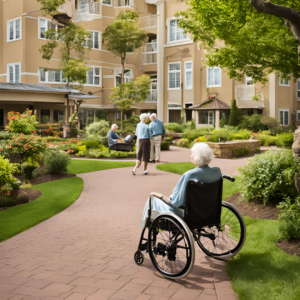As seniors age, their healthcare needs become more complex and unique. A one-size-fits-all approach does not work when it comes to senior care, which is why personalized care plans are essential in promoting overall health and well-being. By tailoring care to an individual’s specific needs, preferences, and medical conditions, seniors can enjoy a higher quality of life and better health outcomes.
1. Addressing Individual Health Needs
Every senior has unique medical conditions, mobility levels, and cognitive abilities. Personalized care plans take these factors into account by:
- Assessing chronic conditions such as diabetes, heart disease, or arthritis.
- Adjusting care for mobility challenges or physical therapy requirements.
- Providing specialized care for memory-related conditions like Alzheimer’s or dementia.
2. Enhancing Medication Management
Seniors often require multiple medications to manage their health conditions, which can lead to confusion or missed doses. Personalized care plans help by:
- Creating medication schedules to ensure timely and correct dosages.
- Monitoring for potential side effects or interactions.
- Providing reminders or direct assistance with medication intake.
3. Promoting Emotional and Mental Well-Being
Mental health plays a crucial role in overall senior health. Personalized care plans support emotional well-being by:
- Encouraging social interactions through community activities.
- Offering mental stimulation with personalized hobbies and cognitive exercises.
- Providing counseling or support groups for emotional challenges.
4. Encouraging Proper Nutrition and Diet
A well-balanced diet is vital for seniors to maintain energy levels and overall health. Personalized care plans help by:
- Developing meal plans tailored to dietary restrictions or preferences.
- Monitoring nutrition intake to prevent malnutrition or dehydration.
- Offering assistance with meal preparation or feeding, if needed.
5. Ensuring Safety and Fall Prevention
A safe living environment is critical for seniors, especially those with mobility concerns. Personalized care plans enhance safety by:
- Identifying fall risks and making necessary home modifications.
- Implementing physical therapy exercises to improve balance and strength.
- Providing mobility assistance or adaptive equipment when needed.
6. Strengthening Family Involvement and Communication
Family members play an essential role in senior care, and personalized care plans help keep them engaged by:
- Keeping families informed about their loved one’s health and progress.
- Involving them in decision-making regarding medical and lifestyle choices.
- Encouraging regular visits and participation in care planning.


